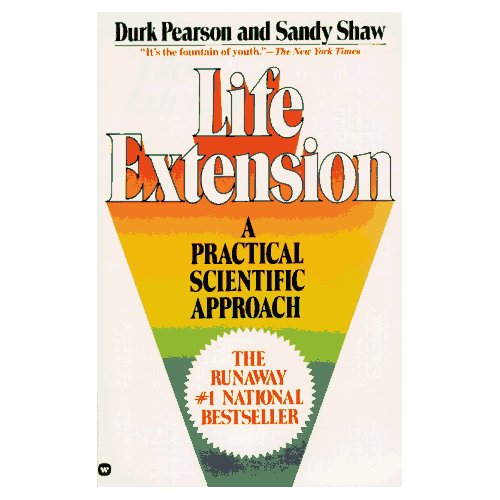
LIVE LONGER WITH VITAMIN D3
- by Life Priority
- No Comments
- Post Views: 2
The Durk Pearson & Sandy Shaw®
Life Extension NewsTM
Volume 20 No. 1 • February 2017
LIVE LONGER WITH VITAMIN D3
or
LIVE LESS LONG WITH LESS VITAMIN D3
Vitamin D deficiency has been linked to many chronic disorders, such as multiple sclerosis, inflammatory bowel disease, infections, immune deficiency, cardiovascular disease, hypertension, heart failure, sudden cardiac death, cancer, and Alzheimer’s disease (Gruber, 2015). But, even more than that, low vitamin D levels in serum are associated with increased mortality. In fact, in a recent meta-analysis of 42 randomized trials, taking vitamin D for three years or longer resulted in a significant 6% reduction in all-cause mortality.
In another meta-analysis (this one included 73 observational studies and 22 randomized controlled trials with 849,412 and 30,716 participants respectively), the observational studies were reported to show that “[e]ach decline of 25(OH)D [vitamin D] by 10 ng/mL was associated with a 16% increased risk of all-cause mortality (Gruber, 2015).”
Importantly, however, different forms of Vitamin D have different effects. In the randomized clinical trials noted in the paragraph above, “where vitamin D2 (dose range: 208-4500 IU/day) or vitamin D3 (dose range: 10-6000 IU/day) were given alone vs placebo or no treatment, vitamin D3 significantly reduced the mortality by 11%, whereas vitamin D2 increase[d] the mortality by 4%.” (The increased mortality seen with vitamin D2 was, however, seen with lower doses (<600 IU/day) and shorter average periods of supplementation (less than 1.5 years).) Vitamin D3 is the form of vitamin D that the two of us take.
A third meta-analysis that included 32 studies from January 1966 to January 2013 with more than 500,000 people (about 55 years old), found that serum 25(OH)D levels less than or equal to 30 ng/mL were associated with greater all-cause mortality, as compared to levels over 30 ng/mL. The authors of this meta-analysis also noted that the cutoff point for a deficient intake of vitamin D (20 ng/mL), as recommended by the federal government’s Institute of Medicine was too low to get all the health benefits of vitamin D (e.g., reduced risk of all-cause mortality and diseases such as cancer, autoimmune diseases, etc.). They suggested that the cutoff point should “not be set at 20 ng/mL, but at 30 ng/mL (Gruber, 2015).”
It is notable that the “Institute of Medicine recommended a daily tolerable upper intake (UL) for vitamin D for persons of nine years and older of 4000 IU and the Endocrine Society recommended for adults an UL of 10,000 IU vitamin D (Gruber, 2015).” We take 16,000 IU/day to attain a minimum-mortality sweet spot value of 60 ng/ml. NOTE: Do not take more than 10,000 IU/day unless you also have a blood test to verify that you are not taking too much.
It is also interesting to know that “obese individuals needed 2.5 times more vitamin D to raise the blood levels of 25(OH)D to the same degree as a normal weight person (Gruber, 2015).”
In conclusion, vitamin D3 is an inexpensive way to obtain a variety of potentially important health benefits, including the possibility of living longer.
Reference
Gruber et al. Live longer with vitamin D? Nutrients. 7:1871-80 (2015).
Life Priority, established in 1994, offers supplements that are scientifically-formulated, results-oriented, and GRAS (Generally Recognized As Safe) and are manufactured at USDA and FDA inspected facilities.
*The products and statements made about specific products on this web site have not been evaluated by the United States Food and Drug Administration (FDA) and are not intended to diagnose, treat, cure or prevent disease. All information provided on this web site or any information contained on or in any product label or packaging is for informational purposes only and is not intended as a substitute for advice from your physician or other health care professional. You should not use the information on this web site for diagnosis or treatment of any health problem. Always consult with a healthcare professional before starting any new vitamins, supplements, diet, or exercise program, before taking any medication, or if you have or suspect you might have a health problem.
*Any testimonials on this web site are based on individual results and do not constitute a guarantee that you will achieve the same results.
Sign up for emails from OneHeartNetwork.com:
By providing your email address, you are agreeing to our privacy policy.



